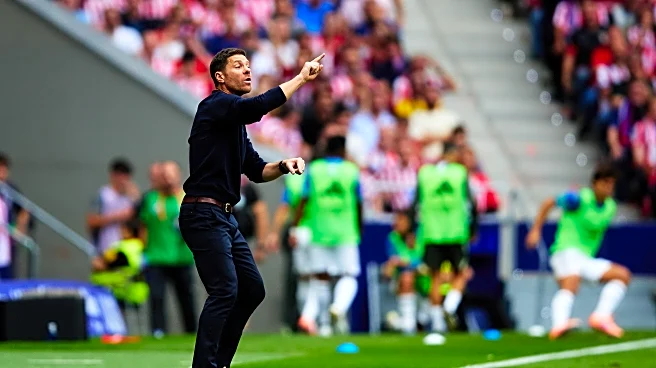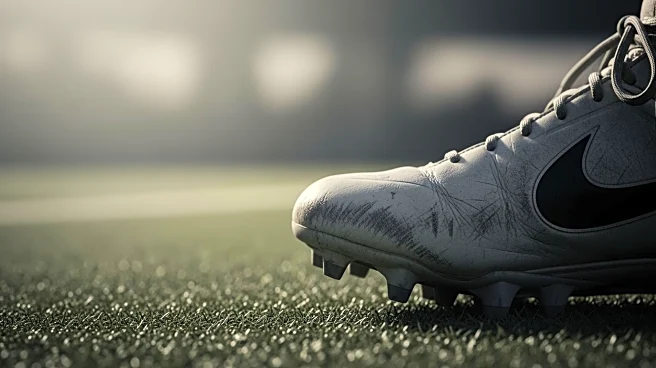Losing narrowly to a rival of equal stature is tolerable, even inevitable. What is harder to accept is Madrid’s habit of disappearing entirely on the games that matter most. It was evident in last season’s
Clásicos, in the Club World Cup semi-final against Paris Saint-Germain, and again in the humiliation at the Metropolitano last weekend. In each case, Madrid did not simply lose; they forgot to compete.
The scorelines have told their own story — four goals or more conceded, regardless of whether the stage was the Bernabéu, a neutral venue, or the Metropolitano. This is a multifaceted problem. Some of it is down to the attitude of the players in these fixtures, some of it is tactical. The two are intertwined, and one cannot be fixed without the other being taken into account.
No coach, not even one as meticulous as Xabi Alonso, can reshape Real Madrid’s ingrained habits overnight. The patterns with and without the ball are too deeply embedded to be undone in a matter of weeks. Alonso has instead opted for a building-blocks approach, piecing together a structure game by game, and in the seven matches leading up to the derby, there were signs, faint but visible, of progress.
The collapse against PSG in New Jersey was disappointing but hardly shocking. It underlined, more than anything, the distance still to be covered before Madrid could hope to match the rhythm and rigour of a side as finely tuned as PSG. What has altered the tone of the conversation is not that defeat, but what came after. The devastating loss to Atlético Madrid a couple of months later has cast fresh doubt over just how much ground has truly been made, and how much work remains.
What troubles most is not merely tactical but psychological. Madrid’s lack of resilience in these fixtures cuts to the core of their identity. This is the club that has built its legend on the impossible comeback, on the refusal to surrender when all else pointed to defeat. That defiance has been their calling card. Yet in these recent encounters, it has been conspicuously absent.
The derby at the Metropolitano offered a cruel illustration: Madrid recovered from an early blow to lead 2–1 at half-time, only to wither once Atlético restored parity. From that moment on, there was no response, no revival, no resistance.
Xabi Alonso wants to move on quickly, and right so. “Whether we win or lose, our feelings around it can only last 24 hours. It wasn’t just about the attitude, it was the rhythm and tactical elements too, we have to improve in terms of the solutions and pace to the game so we can compete better,” said Alonso, in the pre-match press conference ahead of the Champions League fixture against Kairat Almaty.
“We’ve had a fair few games, but it hasn’t been so long working on what the new coach wants from us. We all have to give it our very best so we can sort things out as quickly as possible. We’ve had two defeats, and both were tough: against PSG, and now the other day,” said Fede Valverde, in the same press conference.
Real Madrid find themselves at the back of a big defeat in a crucial phase of the season, even though it’s barely October. El Clásico is in the rearview mirror with Champions League games ramping up as well. Alonso and his team would need to come up with a quick and sustainable response.
With Dani Carvajal and Trent Alexander-Arnold both sidelined, Valverde may once again be asked to improvise at right back. His versatility has never been in doubt, nor his commitment to the cause. Yet his form, and more specifically his role in Alonso’s system, have become a subject of concern. The question is not whether Valverde embodies Madrid’s spirit — few do so more visibly — but whether he is truly compatible with what Alonso demands in midfield.
Alonso’s structure depends heavily on a horizontal outlet in the first and second phases of buildup: a player who is not only mobile, but perpetually available, positioned in close proximity to the ball carrier and aligned on the same passing line. At Madrid, that responsibility has often fallen to Valverde. Mobility is not the problem — in fact, no one in this squad is better equipped for it. The difficulty comes in what follows.
At Bayer Leverkusen, Granit Xhaka made that role look natural, knitting play with quick releases into valuable areas before resetting as an option again. Madrid have not enjoyed the same fluency. The pairing of Aurélien Tchouaméni and Valverde has yet to click, and while Valverde’s energy carries him across the pitch, his distribution has too often failed to circulate the ball with purpose.
Any conclusions from Real Madrid’s response against Kairat Almaty should be drawn with caution; the real tests still lie further ahead.









